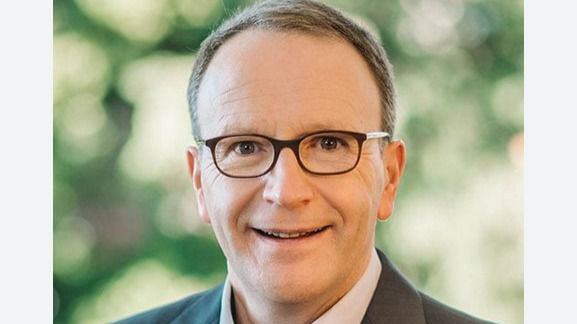Margins and crises: Mark Schneider, Nestlé’s recently ousted chief executive, steered the world’s largest food maker through the COVID-19 pandemic, boosted margins despite a subsequent supply chain crisis and carried out a historic reorganization.
So when did you lose the board’s trust?
While Nestlé declined to comment on the nature of his departure when it announced it on Thursday and Schneider did not respond to a request for comment, three sources told Reuters on Friday that the executive had been fired.
One source said the decision came after Nestlé’s board became increasingly concerned about weak sales growth. They also cited concerns about slowing product development as new and revamped products take longer to design and launch.
“Two years ago, Mark Schneider could do no wrong; now everything seems to be going wrong for him,” said Bernstein analyst Bruno Monteyne, warning of a slump in Nestlé’s shares, which have fallen about 30 percent since their pandemic peak in early 2022.
But “is that a good reason to break up with a CEO who just two years ago was considered the best CEO in the industry?” Monteyne asked.
In 2017, Schneider, 58, became the first outsider to lead the maker of KitKat bars and Nescafé coffee in nearly a century. Its shares peaked during his tenure, reaching a record high of 129.5 Swiss francs ($152.73) in early 2022.
That year, he led a restructuring of the company, changing its executive board to align with a new geographic structure.
While rivals such as PepsiCo PEP.O and Unilever ULVR.L failed to sustain operating margin growth in the seven years to 2023, Schneider boosted Nestle’s to 17.3 percent from 16.5 percent.
This feat was particularly notable given the impact industry margins took during the pandemic.
But the board’s concerns about low sales volumes and underinvestment are not unfounded and have been raised repeatedly on calls with analysts and investors in recent years.
Slow growth, innovation
Nestlé has seen uneven sales growth during Schneider’s nearly eight years in charge compared with some of its competitors, losing the momentum it gained during the pandemic by turning away shoppers with overly high prices in 2023.
The industry and other consumer goods industries have seen prices rise dramatically as supply chain and raw material costs soar, fuelling a global cost-of-living crisis.
In response to a question during his latest post-earnings call in July, Schneider acknowledged that supply chain constraints in 2022 had left “less energy” for innovation, which he said may have inadvertently helped private label or private label products compete.
It was a new stance: Schneider had previously played down the threat posed to Nestlé by private label competition, saying that while the company had seen “limited” signs of it, it was likely to be temporary. “I’m not worried,” he said at the time.
But in the year to mid-June, according to Nielsen data analysed by Barclays, Nestlé’s grocery market share had fallen sharply in Europe from a year earlier and had been hit hard in the United States.
Other companies such as PepsiCo and Unilever also lost market share and sales volumes due to price increases. However, these other major players managed to increase their volumes again in recent quarters, earning praise from analysts for backing their recovery with innovation and strong advertising.
Nestlé was initially less able to rein in its price increases, and even when it did so last year, volumes (or “real internal growth”) remained weak.
Schneider’s withdrawal from marketing in 2022 has also been repeatedly criticized by investors and analysts, despite its renewed push into advertising since then.
He himself said that marketing was “quite subdued” in 2022 due to supply chain and capacity constraints.
His replacement, Laurent Freixe, a 62-year-old Frenchman, started working for Nestlé 40 years ago in marketing roles before rising to executive positions.
He is considered an expert in the food sector, with a wide network of executives and experts inside and outside the Swiss group. He has immediately committed to focusing Nestlé on organic growth rather than acquisitions.
Disclaimer:
The information contained in this post is for general information purposes only. We make no representations or warranties of any kind, express or implied, about the completeness, accuracy, reliability, suitability or availability with respect to the website or the information, products, services, or related graphics contained on the post for any purpose.
We respect the intellectual property rights of content creators. If you are the owner of any material featured on our website and have concerns about its use, please contact us. We are committed to addressing any copyright issues promptly and will remove any material within 2 days of receiving a request from the rightful owner.

